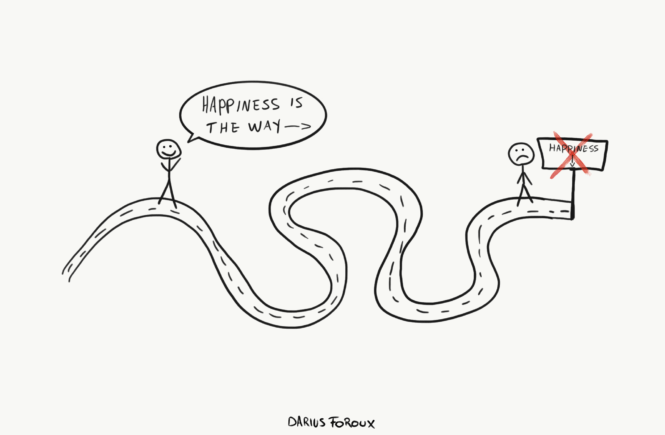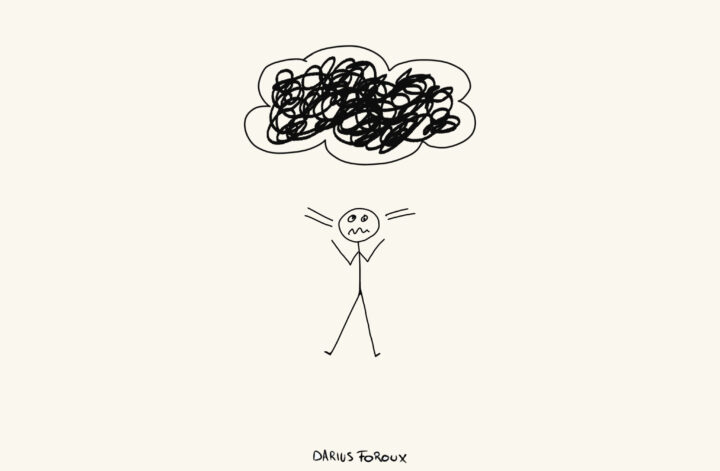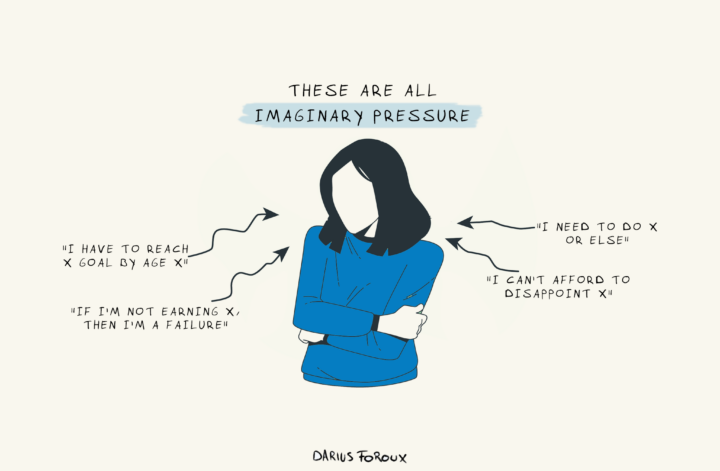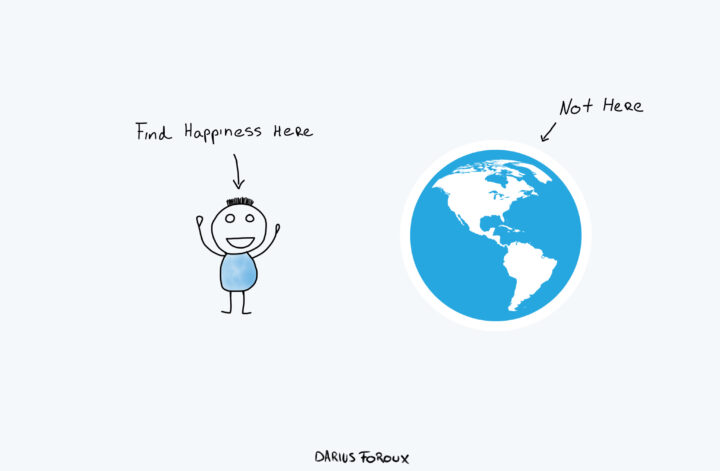I’ll be happy when I make six figures. I’ll be happy when I have a partner. I’ll be happy when I move to a big city. I’ll be happy when I have a rich social life.
These are some of the things I used to think. Can you relate to that? It’s called conditional happiness. We all do it.
You can spot conditional happiness when you use “if” or “when.” X depends on Y. But what if X is an independent factor? What if X is not conditional?
You can replace X with any esoteric pursuit in life: Happiness, meaning, fulfillment, tranquility, inner peace, purpose—or any new age term people are using to explain that they simply want to be happy.
Happiness Is Not A Destination
Modern society implies that happiness is some kind of outcome—something you can achieve. You see it on social media all the time. People post a picture that connotes freedom, happiness, or wealth and use the hashtag #goals. There are relationship #goals, body #goals, life #goals, and so forth.
While I’m a big believer in goals, I avoid setting goals that are related to outcomes. For example, my health goal is to lift weights 3-4 times a week and to walk at least 30 minutes every day. I don’t want to look like someone. I don’t control that. I control my actions.
The problem with chasing happiness and other outcomes is that you create inner conflict. When you get what you don’t want, you’re unhappy. And when you don’t get what you want, you’re also unhappy. This problem is as old as modern society. The fix is simple: Avoid desires and aversions. But like almost all philosophical concepts, it’s hard to apply this to daily life.
It requires regular practice to live your life without desires and aversions. We all have desires, which is good. Because desire is what motivates us to make life better. But what if your life is already good as it is?
When Happiness Becomes The Way
I always had this drive to make my life better. But at some point, after reading hundreds of books on philosophy, and practicing it, I realized that happiness is not a goal.
“I just want to be happy.” How often have you said or thought that? I know I have said that many times. But here’s a simple and profound lesson: What if happiness is not a goal but a way of life?
The Buddhist monk Thích Nhất Hạnh, who has published more than 100 books, wrote this in The Art Of Living:
“There is no way to happiness; happiness is the way.”
When I read that for the first time, it was one of those “Aaah, I see” moments. We’ve been thinking about happiness the wrong way. That should not come as a surprise; our lives are hugely influenced by advertising. And every single ad says one thing: “You’ll be better off IF you use my product or service.”
Yeah, right. Next time you see a message like that or think that happiness is conditional, remember that there is no way to happiness; happiness is the way.
If you don’t remind yourself of this idea, you risk going back to the standard way of life. Because let’s face it, chasing happiness is the standard. That’s how millions of people live their lives. Is it because that’s our natural tendency, or are we influenced by advertising and pop-culture? It doesn’t matter.
What matters is that you realize that happiness is the way. The way you do anything in life. I know this doesn’t sound tangible. It took me a while to truly live this concept. And I must say, there are times I forget about this.
During those times, I start chasing things again. But that only frustrates me. I need to remind myself that I’m not in a hurry and I don’t need anything. Everything in life is a bonus. That’s how you do your best work and that’s how you are your best self. You won’t be needy.
I used to think this way of life turns you into a couch potato who doesn’t need or do anything. Because you might think, “if everything is fine, why would I do anything?” Sure, you are fine. But that doesn’t mean you can’t have ambition. It’s all up to you! One thing is sure: You don’t need anything.
But if you decide to achieve things in life, you do it a different way. When happiness is the way, your work comes from a calm and confident place.
When you walk, eat, talk, work, rest, you do it happily. You know that you’re no longer in a hurry to get somewhere. You’re already there.
There you have it. You’re already happy. Now go do something else instead of chasing something you already have.




